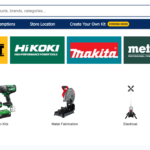The modern business landscape is being transformed by the integration of technology within physical spaces, which enhances customer engagement and experience based. Modern consumers prefer interactive and sensory-rich technological experiences, which helps them over passive observation, providing numerous benefits.
Retail designs are shifting from traditional layouts to flexible environments that promote exploration and learning about technological products. The concept of Experience Zones allows customers to access products in meaningful ways, emphasizing the importance of creating contextual interactions and training to make the most of their experience with the tool, building on their knowledge and skills in the space and room.
Community-oriented approaches with educational elements are being adopted by retailers, helping to foster deeper connections between brands and consumers.
The role of digital media in modern events

Digital media has revolutionized the way events are conducted and experienced. Real-time interactions enabled by digital platforms are crucial for enhancing public engagement in social, political, or corporate events. The shift from one-way communication to interactive dialogues enriches experiences, breaks down geographical barriers, and fosters global idea exchanges.
Visual storytelling and video animation have become central to conferences, product launches, and corporate events across Asia and beyond. Event videography in Singapore has set a high standard for visual storytelling, influencing global practices. These events leverage the power of digital media to create compelling narratives that captivate audiences and convey messages more effectively.
The rise of virtual reality (VR) and augmented reality (AR) technologies has elevated event experiences. These immersive technologies allow participants to engage with content in ways that were previously unimaginable, providing a virtual yet tangible experience that enhances understanding and retention. Using VR and AR in events captivates audiences and provides valuable data and insights through advanced analytics.
Technology as a bridge between businesses and audiences
Technology is redefining how businesses connect with their audiences, enhancing interaction and engagement. Augmented reality (AR) and other innovative technologies are leading this transformation, offering new ways for companies to showcase their products and services. Tech-driven experiences enable businesses to create more immersive and memorable interactions with customers.
For example, the use of portable PA system in events, both large and small, demonstrates how sound technology can create professional and engaging experiences across different settings. These systems deliver messages clearly and effectively, enhancing event quality and leaving a lasting impression on the audience.
The future of work is also being shaped by these technological innovations. Virtual meetings and AI-driven analytics are fostering more efficient and productive business environments through advanced tech integration. As businesses continue to embrace these tools, they are better equipped to meet the evolving needs of their customers and stay competitive in a rapidly changing market.
Evolving expectations of work environments

As we shift our focus from events to workplaces, it’s evident that the expectations of work environments are evolving significantly. Remote work and hybrid work models have fundamentally changed perceptions of workspaces, allowing employees to benefit from flexible arrangements. Employers are increasingly recognizing the importance of providing hybrid work arrangements that cater to the diverse needs of their workforce.
Flexible offices and coworking spaces are popular as they allow employees to choose environments that suit their preferences and working styles. These spaces often come equipped with the latest technology, ensuring seamless connectivity and collaboration among team members, regardless of their physical location. The shift towards adaptable work environments is about fostering a culture that supports mental well-being and promotes health and comfort, not just convenience.
Sydney has become a hub for flexible office spaces, reflecting a broader global trend towards adaptive work environments. Sydney’s rental landscape offers options from traditional office spaces to modern coworking hubs, catering to small businesses and large corporations. Flexibility is crucial in attracting and retaining top talent, as employees increasingly seek workplaces that align with their values and lifestyle preferences.
Sustainability is a key expectation in modern workplace design. Companies are integrating eco-friendly practices and sustainable materials into their office spaces, reflecting a commitment to environmental responsibility. This approach enhances the physical work environment and resonates with employees who prioritize sustainability.
The global demand for adaptive office solutions
Global demand for adaptive office solutions reflects the changing dynamics of the business world. Cities worldwide are adapting to these changes by offering flexible office spaces that meet the evolving needs of modern businesses. Sydney, for example, has become a leader in providing innovative office rental solutions that cater to a diverse range of business requirements.
Adaptive office spaces are versatile, allowing businesses to scale up or down as needed. Flexibility is crucial in an environment where business needs can change rapidly. Whether it’s a startup looking for temporary office space or a large corporation seeking to expand, adaptive office solutions provide the necessary infrastructure to support growth and innovation.
Technology plays a significant role in these adaptive spaces, including:
- State-of-the-art meeting rooms
- Fully integrated digital systems that enhance productivity and collaboration
- Smart technologies, such as AI-driven analytics and automation tools, which further enhance the efficiency and functionality of these workspaces.
Emphasis on sustainability and energy efficiency in adaptive office solutions is significant. Companies are increasingly looking for office spaces that align with their environmental goals, and cities like Sydney are responding by offering eco-friendly options. Green office spaces reduce energy consumption and create healthier, more productive work environments.
The global trend towards adaptive office solutions reflects a broader shift towards flexible, technology-driven, and sustainable work environments. Businesses that embrace these changes are better positioned to thrive in the future of work.
Conclusion
In conclusion, the integration of technology and adaptive physical spaces is reshaping the landscape of modern business. Technological advancements, such as AI, VR, and AR, are crucial in developing a workplace culture that promotes productivity and employee satisfaction. These ai powered innovations are not just tools but essential components that help businesses remain competitive and appealing to top talent.
The physical work environment plays a significant role in influencing employee productivity and overall company performance. Organizations that embrace adaptive physical spaces alongside technological advancements are better positioned to attract and retain talent, enhancing their overall competitiveness. The seamless integration of these elements creates a dynamic and engaging work environment that supports collaboration, innovation, and growth.
Businesses navigating the evolving landscape will gain a competitive edge by adopting smarter event solutions and choosing flexible offices. Adaptability in management is key to thriving in a rapidly changing world, ensuring long-term success and sustainability.
Frequently Asked Questions
How is technology reshaping the modern workplace?
Technology is significantly reshaping the modern workplace by improving connectivity, productivity, and collaboration with advanced tools like AI, VR, and AR. This transformation is enabling teams to work more efficiently and effectively in a dynamic environment.
What are Experience Zones?
Experience Zones are designed to create flexible environments for customers to engage with products and services, promoting deeper connections and understanding. This fosters a more meaningful interaction with the brand.
How has digital media changed modern events?
Digital media has fundamentally transformed modern events by facilitating real-time interactions and enhancing audience engagement through immersive technologies like VR and AR. This evolution leads to more impactful storytelling and overall event experiences.
Why are adaptive office solutions important?
Adaptive office solutions are crucial as they offer flexibility, foster growth, and enhance productivity while aligning with sustainability objectives, effectively addressing the dynamic requirements of contemporary businesses.
What role does sustainability play in modern workplaces?
Sustainability is essential in modern workplaces as it encourages eco-friendly practices, reduces energy consumption, and fosters healthier, more productive environments. Embracing sustainability not only enhances corporate responsibility but also benefits the overall well-being of employees.








